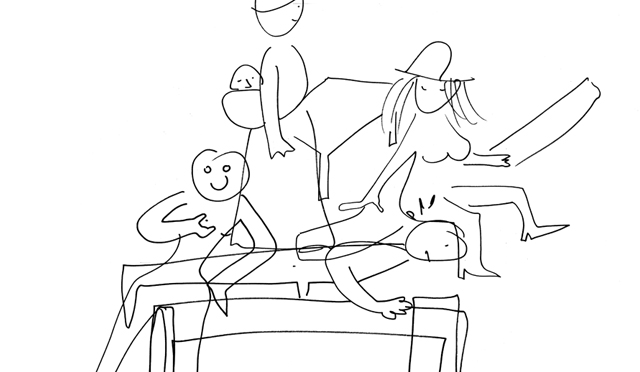Search
To search for an exact match, type the word or phrase you want in quotation marks.
A*DESK has been offering since 2002 contents about criticism and contemporary art. A*DESK has become consolidated thanks to all those who have believed in the project, all those who have followed us, debating, participating and collaborating. Many people have collaborated with A*DESK, and continue to do so. Their efforts, knowledge and belief in the project are what make it grow internationally. At A*DESK we have also generated work for over one hundred professionals in culture, from small collaborations with reviews and classes, to more prolonged and intense collaborations.
At A*DESK we believe in the need for free and universal access to culture and knowledge. We want to carry on being independent, remaining open to more ideas and opinions. If you believe in A*DESK, we need your backing to be able to continue. You can now participate in the project by supporting it. You can choose how much you want to contribute to the project.
You can decide how much you want to bring to the project.
El miércoles pasado, Glòria Guso volvía a hablar de Marc O’Callaghan –entre otros- en un artículo cuasi audible sobre el Ciclo BCN mp7 en el CCCB. Como ya vimos en la extraña entrevista realizada por Ernesto Castro el pasado verano, O’Callaghan esquiva con su producción multifacética varias etiquetas (es ruidista pero no solo, ilustrador, performer, escultor, poeta… ). Rescatamos hoy un video que ya nos gustó en verano (Sentido Del Abismo El, 2011), en el que Marc toma un fragmento de “Cultura y simulacro” de Baudrillard (el fragmento se llama “El Abismo del Sentido”) y lo voltea por completo, vaciándolo de su sentido original, necesariamente temporal, lineal, consecutivo.
De paso recordamos a Baudrillard. También hay que recuperar a los referentes teóricos de vez en cuando y Baudrillard sigue siendo uno de nuestros favoritos. En los ochenta no había un texto sobre arte que no lo citase. Luego fue anatema: todos los que lo citaban renegaron de él cuando el filósofo francés embistió con su simulacro contra el arte contemporáneo que tanto le había querido. Llevamos un tiempo revisando algunos aspectos que nos devuelven una imagen más compleja de los años ochenta. Coger (agarrar) a Baudrillard y ponerlo del revés también es una manera.

A*DESK is a critical platform focused on publishing, training, experimentation, communication and dissemination in relation to contemporary culture and art, which is defined by transversality. The starting point is contemporary art, because that is where we come from and this awareness allows us to go much further, to incorporate other disciplines and forms of thought in order debate issues that are relevant and urgent for understanding our present.
"A desk is a dangerous place from which to watch the world" (John Le Carré)